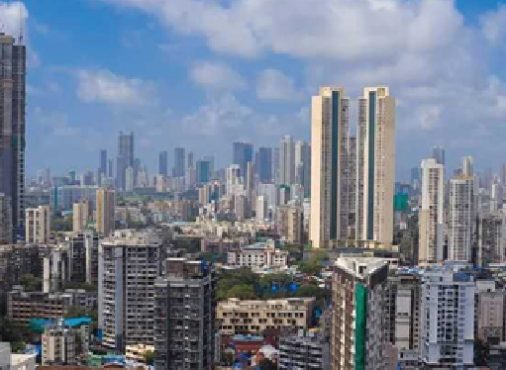The market for high-end homes in India has greatly changed in the last ten years. This happens because High Net Worth individuals (HNIs) and Non-Resident Indians (NRIs) are buying more properties here. This market group is for people who want to live in a unique property, feel comfortable, and make investments that will grow in value over time.
Investing in high-end real estate has two appeals for NRIs. It helps them connect with their roots while offering a secondary income source as a rental as well. One of the main reasons people make these kinds of purchases is to see their property value increase. Location, services, and market trends can all affect this. This blog post tells everything one needs to know about buying high-end homes in India.
Understanding Luxury Property Appreciation
As a result of their high-quality building, prime sites, and high-end features, India’s luxury homes stand out.
The value of a house depends considerably on its location. Homes in cities like Mumbai, Delhi, and Bengaluru are highly valued as they are near commercial districts and businesses. High-tech elements are also abound in luxury houses: smart home technologies, environmentally friendly architecture, and health-conscious elements. Because of this, these tend to go up in value more quickly.
Market changes also affect how much a home is worth. Many things, like how demand and supply change, cities grow, and government laws play a part. Luxury residences in Mumbai and other areas have enjoyed annual appreciation rates of 11.5 % during September 2024.
Key Markets for Luxury Property Investment
Mumbai has the most expensive homes. Places like South Mumbai, Bandra, and Powai constantly see their values rise. These areas are suitable for real estate because they are close to business places, have good transport, and there is a lot of desire for homes that face the sea. NRIs appreciate Delhi-NCR because it blends old-world beauty with modern conveniences.
The information technology (IT) industry in Bengaluru, India’s Silicon Valley, is a major draw for non-resident Indians. Whitefield, Indiranagar, and Koramangala’s high-end houses appeal to those looking for luxury. Cities like Hyderabad and Pune are new areas with much room to grow. Their rapid urbanisation, an abundance of both affordable and luxurious items, and accessibility to prime locations are all contributing factors to this growth.
Luxury real estate investment is also growing in Tier-2 towns like Ahmedabad, Kochi, and Chandigarh. These towns have lower starting costs but will significantly increase in value as infrastructure and urban growth speed up.
Read Also: What Sets a Luxury Real Estate Brand Apart – Key Qualities to Look For
Investment Strategies for NRIs
NRIs can make a lot of money by investing in high-end real estate in India if they do it smartly. To ensure that the investment fits their long-term financial goals and way of life, they need to plan and research it carefully.
-
Focus on Prime Locations:
When investing in real estate, location is critical. NRIs should look for homes with excellent growth potential, good transport, and close to schools, hospitals, and business hubs. Areas undergoing extensive transport initiatives, like metro developments or motorway projects, tend to appreciate faster.
-
Research Market Trends:
Looking at past price trends and learning how the market works is essential. It means looking into factors like supply-and-demand ratios, neighbourhood growth projects, and the economy as a whole. Real estate prices will continue to rise if you invest in places that are about to get new infrastructure or business projects.
-
Collaborate with Reputed Developers:
Working with reputable organisations such as Rustomjee assures better construction, on-time delivery, and more appreciation possibilities. Investing in a developer with experience guarantees that your money will be safe as they are less prone to have legal issues or delays.
-
Balance Short-Term and Long-Term Goals:
In volatile markets, short-term investments can pay off quickly, but they also come with more financial risks. Long-term investments, on the other hand, give you stable rental income and capital growth. In this way, they are perfect for NRIs who want to make regular returns.
Legal Considerations for NRIs
NRIs can invest in Indian real estate without having to follow strict rules. They have complete freedom to buy both homes and businesses. However, they need permission from the Reserve Bank of India before they can buy farmland, farming land, or farmhouses.
Tax effects are an essential part of NRI purchases. Capital gains tax is a tax on the money you make when you sell any asset. However, under Sections 54 and 54EC of the Income Tax Act, you can get a tax break if you put the money in real estate or stocks. NRIs can also get tax breaks on home loan interest payments and capital repayments under Sections 24(b) and 80C.
For deals to go smoothly, NRIs need to have the proper paperwork. For tax reasons, NRIs need a PAN card, valid IDs, and proof that they are from India (PIO/OCI cards). Getting a Power of Attorney (POA) can make working with property easier, especially for people who can’t go to India very often.
Financing Luxury Property Investments
There are now several financing choices available for NRIs. Customised home loan options are available from most banks and other financial companies. Also, well-known banks like HDFC, SBI, and ICICI offer loans with low interest rates and easy paperwork.
Direct investments made with personal funds can help NRIs escape the hassles of home loans and changes in interest rates. However, NRIs should pay close attention to currency exchange rates because they directly affect how much it costs to buy. Investing at times when exchange rates are reasonable can save them money.
NRIs should also look into the plans and services that Indian banks offer that make it easier for them to send money back home.
Read Also: Factors Defining True Luxury in a Modern Apartment
The Role of Real Estate Developers
Luxury home developers have a significant impact on the value of luxury homes and their potential for future appreciation. Here’s how real estate developers affect purchases in real estate:
- Strategic Location Selection: Developers like Rustomjee focus on places with much room to grow. Some are high-end neighbourhoods, places close to business hubs, and building projects. These smart places directly lead to higher rates of appreciation.
- Adherence to Timelines: On-time project performance builds trust and ensures buyers can take advantage of market conditions immediately. Established developers are known for sticking to plans essential for rising property values.
- Compliance with Legal Standards: The risks for investors are reduced by experienced developers who ensure all laws and regulations are followed.
When NRIs invest in projects by developers like Rustomjee, they can assure themselves that the property will be of high quality, and their value will grow over time.
Market Trends and Future Outlook
The Indian luxury real estate market is always growing thanks to strong demand from wealthy buyers and NRIs. Residential unit sales jumped by 11% in the first half of 2024, the fastest sales rate in over a decade. Luxury homes, especially those costing more than ₹1 crore, witnessed 41% growth in sales, up from 30% the year before. This trend shows that people are becoming more interested in high-end homes because of both a status symbol and future investment value.
Mumbai has the best market growth, with a 15% year-over-year rise in luxury home sales. Also, property values are significantly appreciating in other places, like Delhi-NCR and Bengaluru. This is because of fast urbanisation, sound government policies like RERA, and more openness in the sector. The luxury market will likely keep growing as NRIs and HNWIs are still looking for safe, growing investments.
Conclusion
There has been a persistently substantial rise in the value of luxury real estate in India. The reasons are burgeoning economies, increasing demand for premium homes, and rapid urbanisation. By concentrating on long-term development and following India’s laws and financial institutions, NRIs may generate huge profits in the nation’s real estate market.
Check out Rustomjee’s high-end residential properties and spend wisely in India’s growing economy. You can enjoy a high-quality life and strong financial growth if you work with a trustworthy provider.
FAQs
- Can people who don’t live in India buy farmland there?
No, foreign nationals residing outside of India cannot buy farmland, plantation property, or agricultural land in the country without the RBI’s explicit permission. This regulation aims to ensure that non-residents cannot impact the market value or use of farmland. Nevertheless, under Indian law, non-resident Indians can inherit or receive such possessions as gifts from Indian citizens.
- When is the best time for non-resident Indians to buy expensive real estate in India?
Regarding investing, the best times for NRIs are during holidays or special sales. Investing when foreign exchange rates are reasonable can also cut the total cost by a significant amount.
- Can NRIs rent out their expensive homes in India and make money?
Yes, NRIs can rent out their homes in India and earn rental income. This income is taxable in India but can be repatriated to their country of residence after paying the applicable taxes and complying with RBI regulations.








